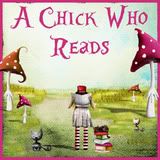
“Say Not What If” is a short story about a man on death row. The story is written as a long rhyming poem, and its primary theme is that time is our most valuable commodity. As someone once said, “waste anything but time, because we really are promised no tomorrows.” This theme is explored through the life of the protagonist, a man who sacrifices his marriage and everything else for his career. He realizes much too late the terrible consequences of this decision, and then desperately tries to regain those lost years by making a much worse choice. The resolution of this latter choice involves an additional examination of the concepts of accountability and responsibility, redemption, and the morality of the death penalty. The story recognizes that regardless of the reason, feelings of regret and even bitterness for the loss of time are understandable. That is simply human nature. Time is a unique commodity that can never be recovered, regained, or replaced. It exists once and then never again. But excessive regret or bitterness about the loss of time simply magnifies the problem by ruining whatever time we have left. Life is about living. Dwelling on losses of any kind interferes with and can even destroy that purpose. Time moves forward and so must we.
Books written wholly in verse are a tricky thing to manage, especially in this day and age where rhyme is not as respected as it once was. I was pleasantly surprised with this short book. I found myself truly submerged in the story. I read it in one afternoon and it left me with lots to think about, which, really, is what books are all about.
The rhyming is handled pretty well, although there are some moments where it feels forced. Some word choices were obviously made to suit the rhyme instead of the mood of the piece. It’s forgivable, and it doesn’t happen too often, so it should not deter any reader.
The plot is quick and to the point, and it deals with some of the questions we’ve been asking ourselves a lot throughout the past few decades. Is the death penalty moral? Does it really do anything but propagate death and misery? Whatever your personal views on this issue, this book will leave you wondering if you’ve made the right choice.
Books in verse are not for everyone, but I can tell you that this one is very accessible. It will not confuse you and you’ll feel the better for having read it.










































No comments:
Post a Comment